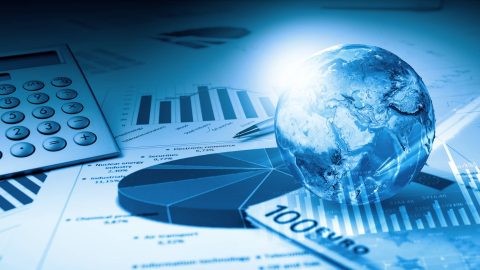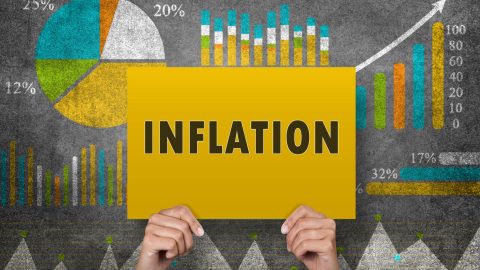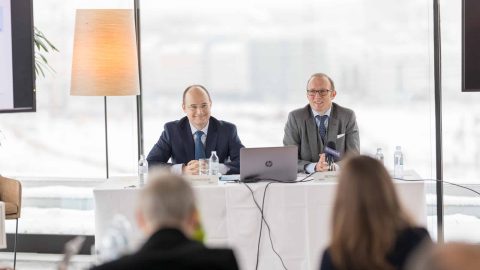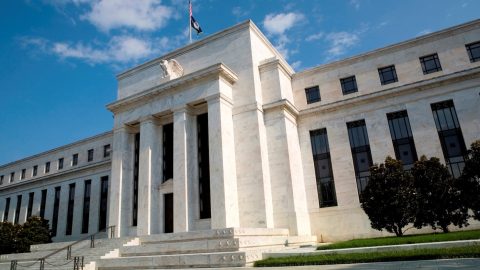Author's Contributions
What role will the dollar and US government bonds play in the future?
Against the backdrop of the debt debate in the US, yields on US government bonds have risen recently. Rising debt and political uncertainty are also weighing on confidence in the US dollar. Could the greenback even lose its role as the global reserve currency?
SERIES: The next 10 years – longterm outlook
You need a mixture of history, economics and politics to hear through the everyday noise and recognize the big trends of the future. In our new series, Erste AM’s investment team identifies those factors that will determine the next 10 years.
The king is dead, long live the king
The king is dead, long live the king. Time for our former Head of SRI Gerold Permoser to draw a summary and write a final ESG review.
Meat consumption and how it is connected to antibiotics in beef (Editorial)
“I just wanted to tell you, your cow Elsa is dead.” An old sketch as an excuse to bring up bad news. What this has to do with meat consumption and antibiotics, you will read in our new post.
Global risks: ghost drivers
An old saying in the industry says: fund management is risk management. The risks that need to be managed have changed noticeably and have become global ecological risks.

Cognitive dissonance in climate policies
If an important actor dissolves his cognitive dissonance by not only repressing the problem, but simply denying it, then this also has global consequences. The most important global decision-makers currently regard ESG (Environmental, Social and Governance) risks, above all environmental risks, as the greatest risks. Read more about cognitive dissonance in our new ESG Letter about Global Risk.
A very boozy Christmas
Who doesn’t know it – sitting together in a boisterous atmosphere, with a glass of champagne in your hand. Or two. Christmas is the celebration of joy, of Christmas markets, and of excessive alcohol consumption: a good reason for us to dedicate this ESG Letter to the topic of alcohol.
Everything was better in the past!
The Austrian term “Komasaufen“, which refers to the practice of binge drinking, received the “Doublespeak Award” 2007. The award followed significant media coverage and discussion on the alcoholic excesses that young people were engaging in with extremely sweet alcoholic beverages.
The primal fear of “Profiling”
Many people harbour an undefined fear of psychologists. Maybe it is the fear of someone being able to look inside them and know what they are thinking. And, let’s be honest: how many times didn’t you think: “Thank God nobody knows what I am thinking right now”? But that was in the past. Nowadays, Google, Facebook, Amazon et al. know quite well what we are thinking. Apparently even better than we do ourselves or the people close to us.
The Physicists
Big Data contains a lot of good, but also a lot of controvery. Just think of social scoring, for example. Your friends, your media consumption, your daily habits, everything you do is recorded, evaluated, and channelled into a rating.
Financial Markets Monitor August: We remain optimistic
The month since the previous meeting in July had been a positive one for investors willing to take risks. Thus, the optimistic risk stance of our team paid off. It is therefore not surprising that the team remains optimistic.
Hey Mrs. Robinson
Editorial: Gerold Permoser, CIO and CSIO of Erste Asset Management, comments on the topic of this issue.
A Brief History of Rubber
Lasting Words: “Everything used to be better. What is plastic today was natural rubber back then,” says Gerold Permoser, CIO and CSIO of Erste AM.
Financial Markets Monitor May: positive opportunities outnumber negative ones
Positive opportunities still outnumber the negative ones on the capital markets – that was the conclusion of our Investment Committee. Our willingness to take risks is still optimistic and also moderately higher than in April.
Financial Markets Monitor April: upside-down scenario
On 3 April, we held our monthly Investment Committee meeting. Only three weeks after the previous one – three weeks that were tightly packed with issues, as we can see in the performance data of the most important asset classes. Equities and high-yield bonds have lost value, whereas Eurozone government bonds and emerging markets bonds have recorded gains. An upside-down scenario, compared to previous months.
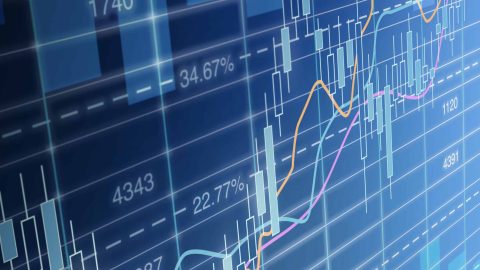
Financial Markets Monitor: we have stepped up the risk of our asset allocation by a notch
On 14 March our Investment Committee met, and as always, we started out on a discussion of our risk stance, i.e. our risk assessment. From my point of view, four findings of the discussion are worth bringing up here:
The source of life (Editorial)
Gerold Permoser is Chief Investment Officer (CIO) of Erste Asset Management. In this function he is in charge of the asset management activities and investment strategies of all investment funds of the Erste Asset Management Group in Austria, Croatia, Czech Republic, Germany, Hungary, Romania and Slovakia.
Market Monitor: After the market correction, confidence outweighs
The year 2018 had started on such a promising note – is what we all were thinking. But at the beginning of February, the market taught us a lesson. As a result, the discussions at our first Investment Committee of the year at the beginning of February were interesting ones.
How does inflation work? – Part 2: Inflation drivers
There are many factors that may affect inflation. Also, the weights of certain factors may vary across countries. Take the development of the exchange rate, for example.
Inflation: a general overview – Part 1
At the moment the environment on the markets is very supportive. The economy is booming, the big central banks are still buying government bonds on aggregate and are thus keeping yields low, and the tax reform in the USA has improved the sentiment further over the past weeks. In addition, most asset managers agree on the status quo. Given this background, people ask “when will the party end?”. An increase in inflation is (one of) the usual suspect(s).
Market Monitor: risky markets have come far
Earlier this week, we convened the last Investment Committee of 2017. The general risk appetite of the team has not changed vis-à-vis the previous month (from 78.85 percent to 79 percent on our 0 – 100 percent scale). The team continues to see the future optimistically, with a resulting “risk on” stance.
Capital markets outlook for 2018: Will the party hold on?
2017 is drawing to an end, and the bottom line is positive. The outcome is significantly better than we had expected. Since the financial crisis in 2008, the global economy has never expanded more quickly and especially concertedly than in 2017. Also, inflation has surprised on the downside, falling short yet again of the expectations held by central banks and analysts.
Market Monitor: Optimism on the rise
This week we held our monthly Investment Committee meeting. Although only little has changed with regard to the overall economic picture, we were having a few interesting discussions that we would now like to share with you.
Market Monitor: positive for risky asset classes
Once a month the Investment Committee of Erste Asset Management convenes in order to discuss the medium-term market outlook. We are going to start a new blog, where we will report on what drives our investment professionals and what risks they see.
Quo Vadis, Federal Reserve? – Part 3
I will be upfront about it: to me, the Taylor rule is still a helpful tool to assess the future monetary policy of the US central bank. However, it should not be used as blueprint without thinking it through. Instead, it should be seen as heuristic tool that helps structure one’s analysis.
Quo Vadis, Federal Reserve? – Part 2
Since 2008, the key-lending rates in the USA seem to have been significantly too low as measured by the Taylor rule. With some economists blaming Alan Greenspan’s loose monetary policy as partially responsible for the financial crisis of 2008, the question is whether we are in for a déjà-vu.
Quo Vadis, Federal Reserve? – Part 1
The US central bank has embarked on a cycle of interest rate hikes. The question is: by how much will the interest rates increase still, and at what point will it reach a level detrimental to the economy, where equities should be regrouped into asset classes less sensitive to the economic cycle?
Which factors drive equity markets?
It is almost impossible to speak with fund managers and not address the economy or monetary policy. Why is that so? This blog entry will try to answer the question on the basis of data from the US equity market from 1950 onwards.
Germany: is the economy about to face a hot summer?
The IFO business climate index calculated by the Munich-based IFO Institute is regarded as the most important German economic indicator. At 115.1, the value released for June last week was the highest since the launch in January 1991. It was also clearly above the value that had been expected by the financial analysts on average. The signs for substantial economic growth in Germany seem favourable.
After the interest rate hike is before the interest rate hike?
Imagine a fairy that grants you three wishes. What would you wish for? The answer would be very easy for me. I would just like to know if the economy is caught up in a recession of has embarked on an expansionary phase a year from now…
The US dollar is lead currency
A young father is always pressed for time. What he needs is in particular is a good strategy. One of my strategies in selecting reading material is to just wait. Time will tell what is interesting and what is not. Which is why last week I read a book that had come out in 2011: […]









